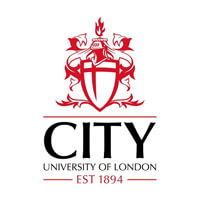fees waived
Economics, BSc (Hons)
City, University of London, United Kingdom
Subject ranking
UK / ARWU 2024 16th
UK / USNews 2024 24th
UK / Guardian 2025 38th
Costs
food & rentS$24.8K / year
Entry requirements
Scholarships
Limited quantity
Information
Code
Intakes
Website (External)
Programmes
Information
Duration
2028
Economic theory remains highly relevant in today's dynamic world, influencing areas such as immigration and healthcare systems. This economics degree delivers a comprehensive grasp of theoretical concepts, emphasizing their practical applications. Students will master the mathematics and statistics underpinning economics, while developing quantitative, analytical, and critical thinking skills to address broader social and political challenges. In the first year, learners can select between Economics or Economics and Econometrics pathways, focusing on quantitative aspects in the latter.The program fosters transferable skills for careers in business, finance, and beyond, including options for professional placements with organizations like HM Treasury and opportunities for study abroad. Core modules span applied microeconomics, macroeconomics, data analysis, and econometrics, with electives in international trade and financial markets. Assessment primarily involves coursework, such as essays and presentations, alongside unseen examinations. The degree aligns with professional bodies like the Chartered Institute of Management Accountants.
Year 1 Lay firm foundations for future study, exploring economic theory and the real-world application of economics. Build on your current mathematics knowledge. Core Modules: Topics in Applied Microeconomics Topics in Applied Macroeconomics Introduction to Microeconomics Introduction to Macroeconomics Data Analysis 1 Data Analysis 2 Elective Modules: Mathematics for Economists Post GCSE 1 Mathematics for Economists Post GCSE 2 Mathematics for Economists Post A Level 1 Mathematics for Economists Post A Level 2 Year 2 Develop your knowledge of micro and macro-economics. In Year 2, you'll also have the option to move to BSc Economics (Economics and Econometrics) depending on the electives you choose. Core Modules: Intermediate Microeconomics 1 Intermediate Microeconomics 2 Intermediate Macroeconomics 1 Introductory Econometrics History of Economic Thought Elective Modules: Intermediate Macroeconomics 2 Intermediate Econometrics Mathematics for Economists Post GCSE 3 International Trade Intermediate Mathematical Methods Global Financial Markets Nations and Firms in the Global Economy Money and Banking Micro-Placements Year 3 Deepen your expertise in your chosen pathway of either Economics or Economics with Econometrics. Tailor your studies to your professional interests with elective modules from a wide selection in economics, finance, law and more. Core Module: Economics and Society Elective Modules: Applied Econometrics Financial Economics Economics Project Corporate Finance Introduction to Financial Derivatives International Finance Monetary Economics Labour Economics Development Economics Industrial Organisation Company Law Advanced Quantitative Economics Experimental Economics Computational Economics Micro-Placements Industry Projects Summer Internship Integrated Professional Training Modules are subject to change.

